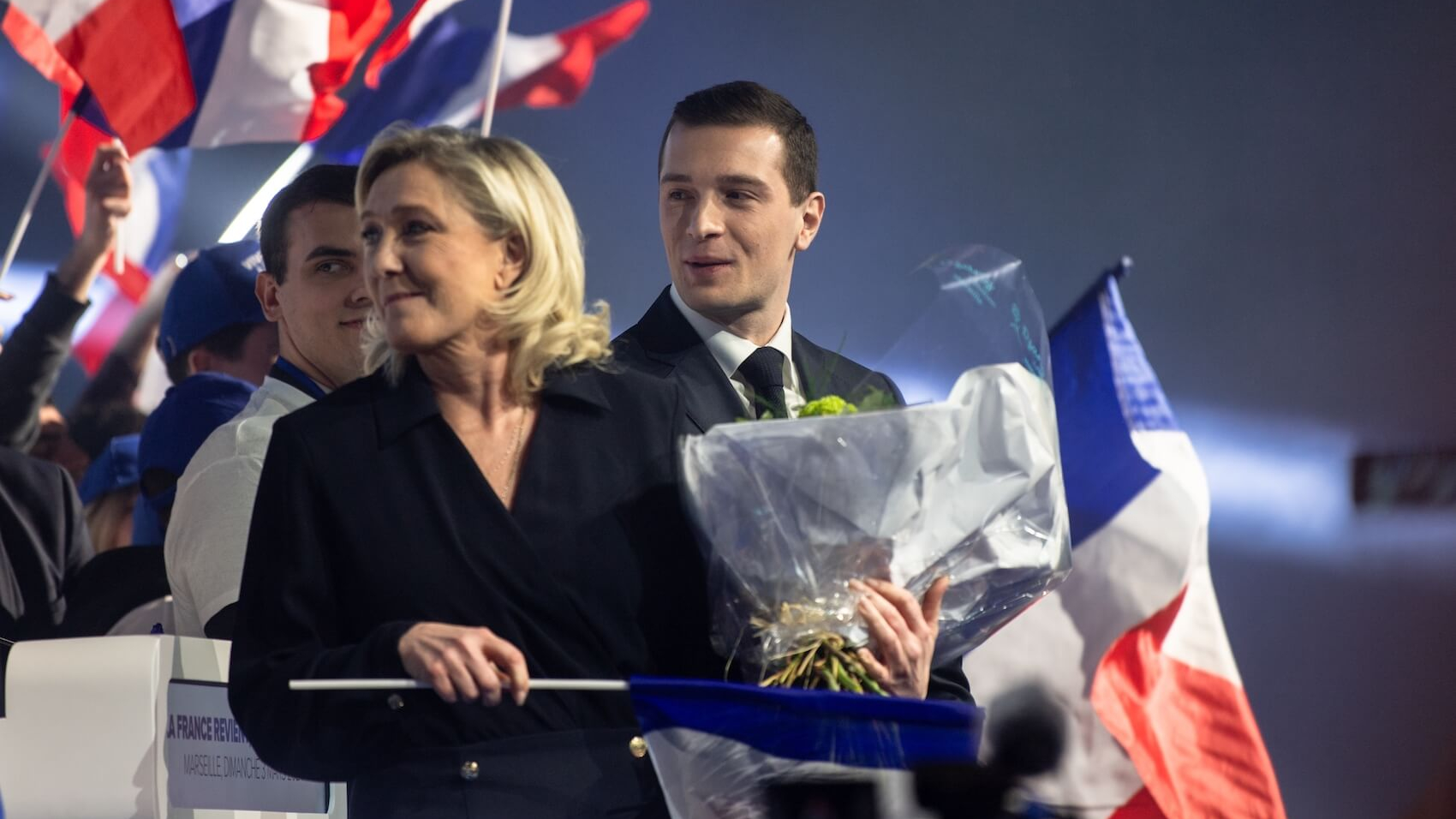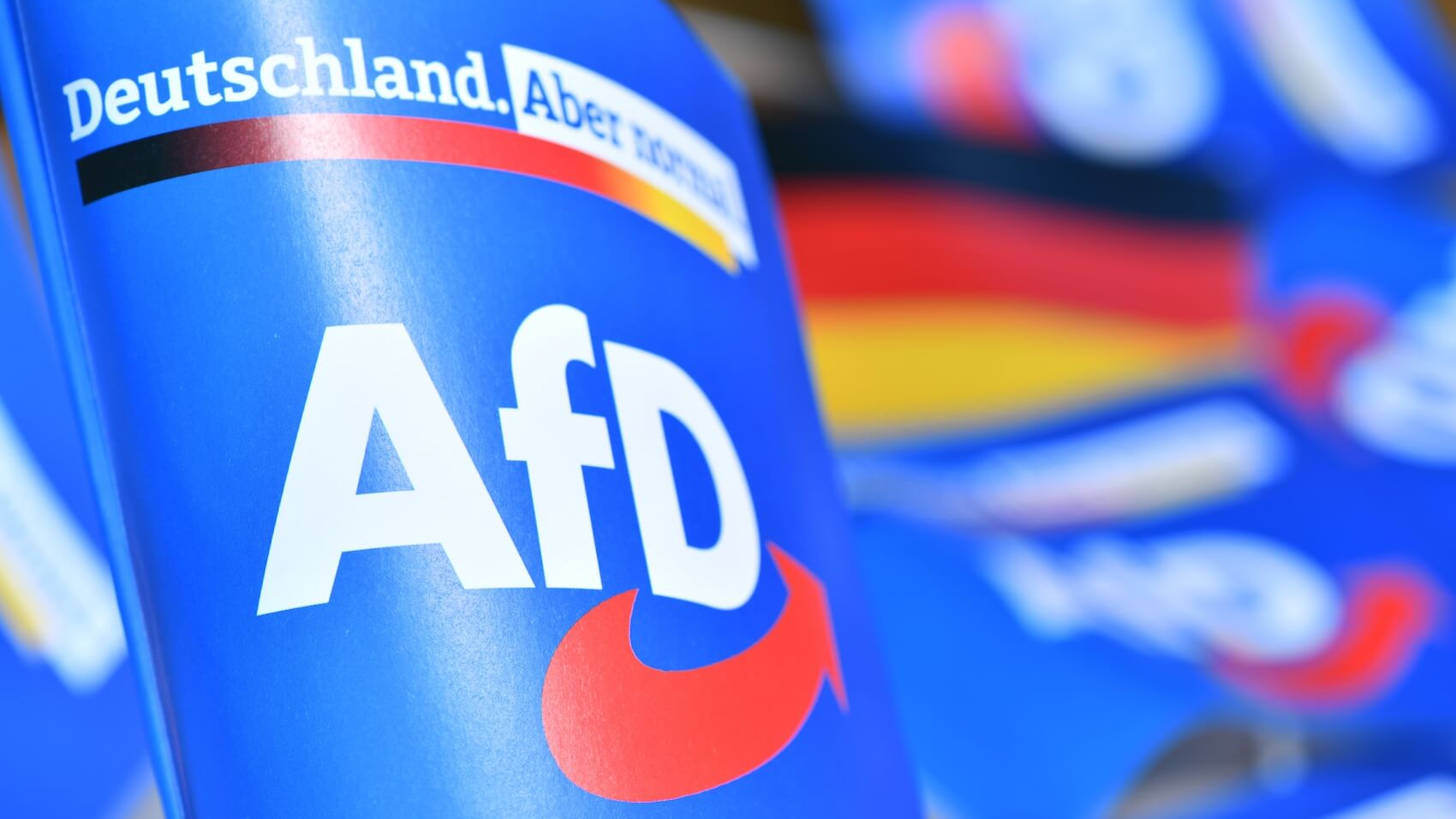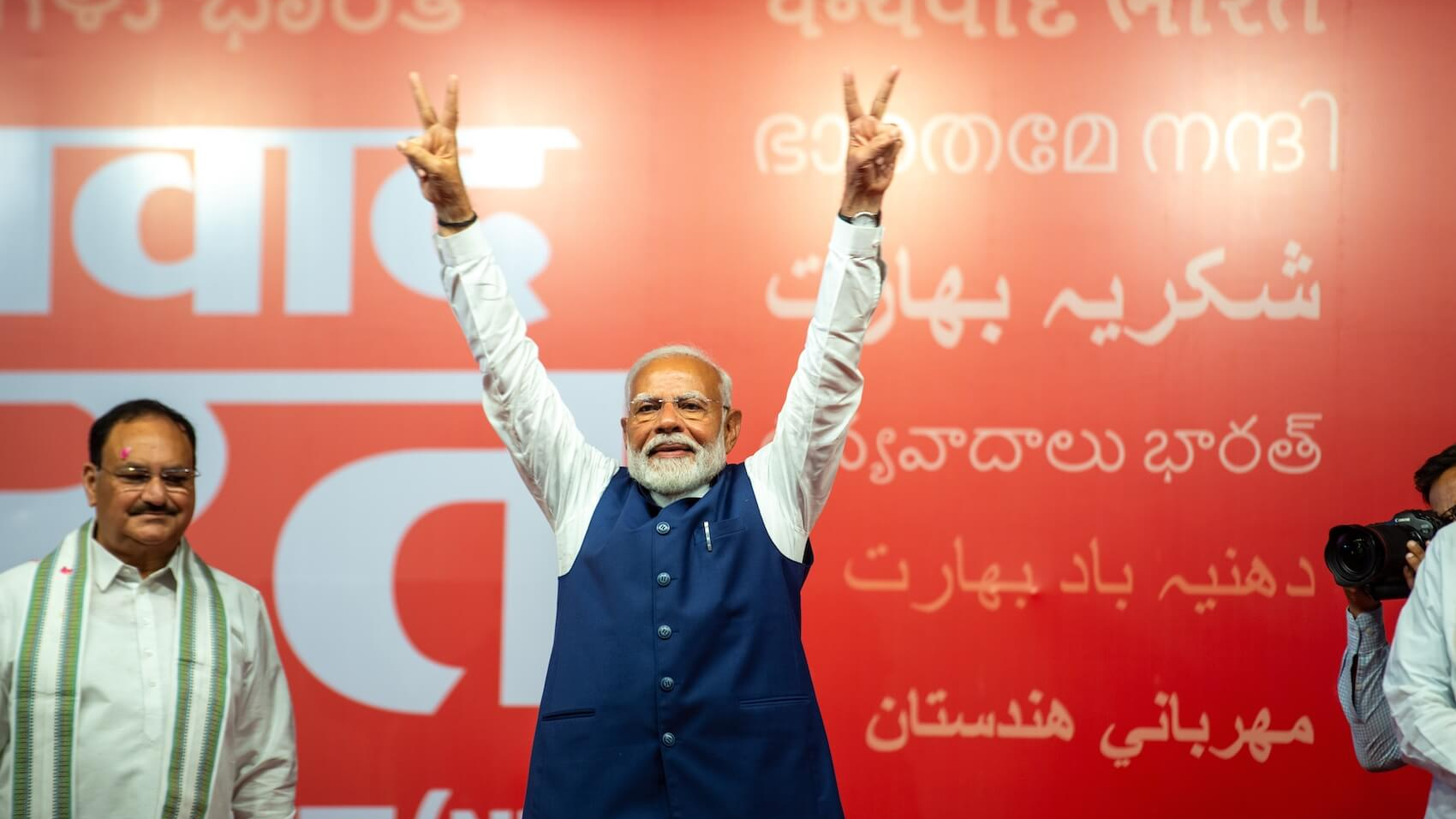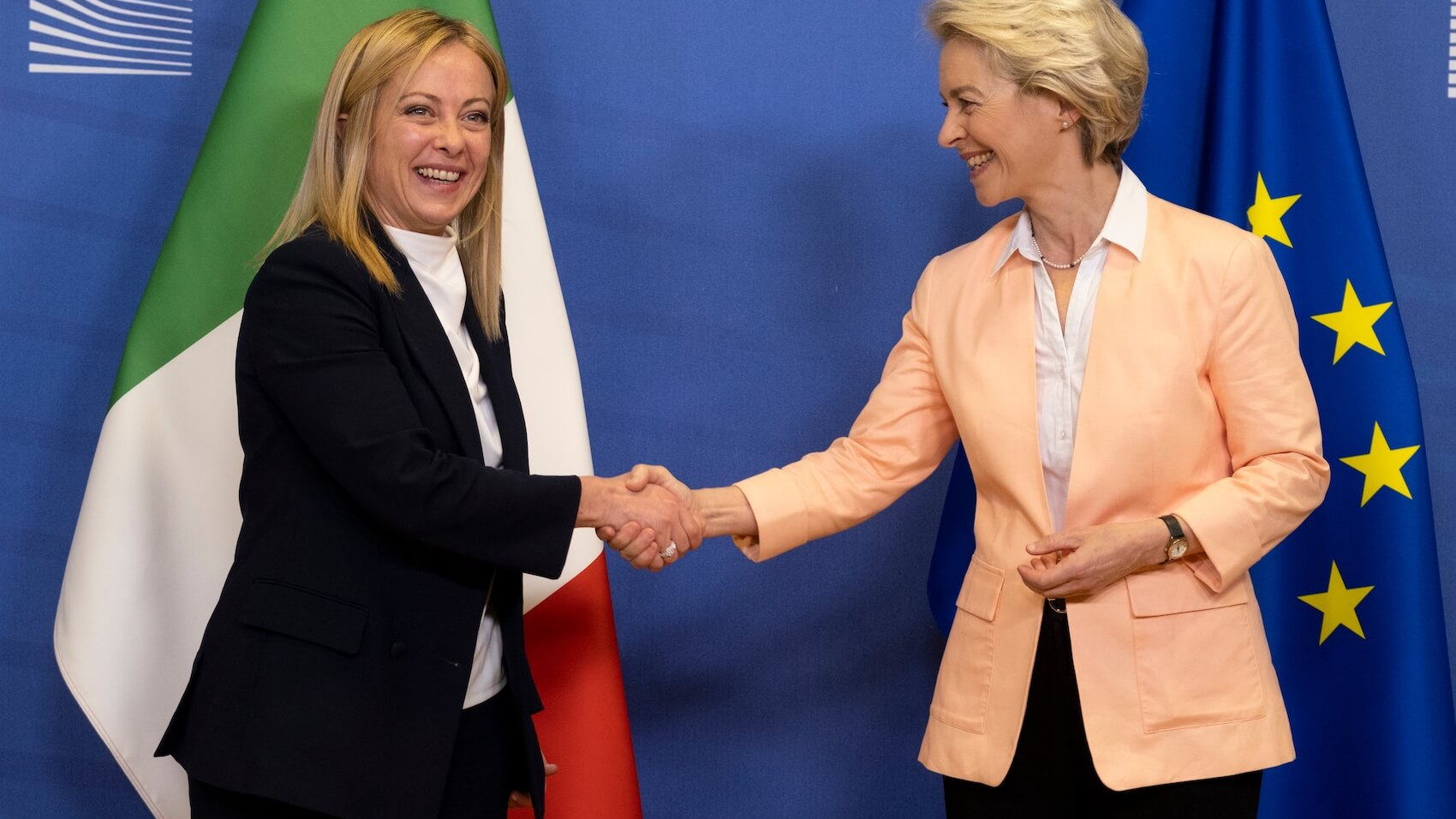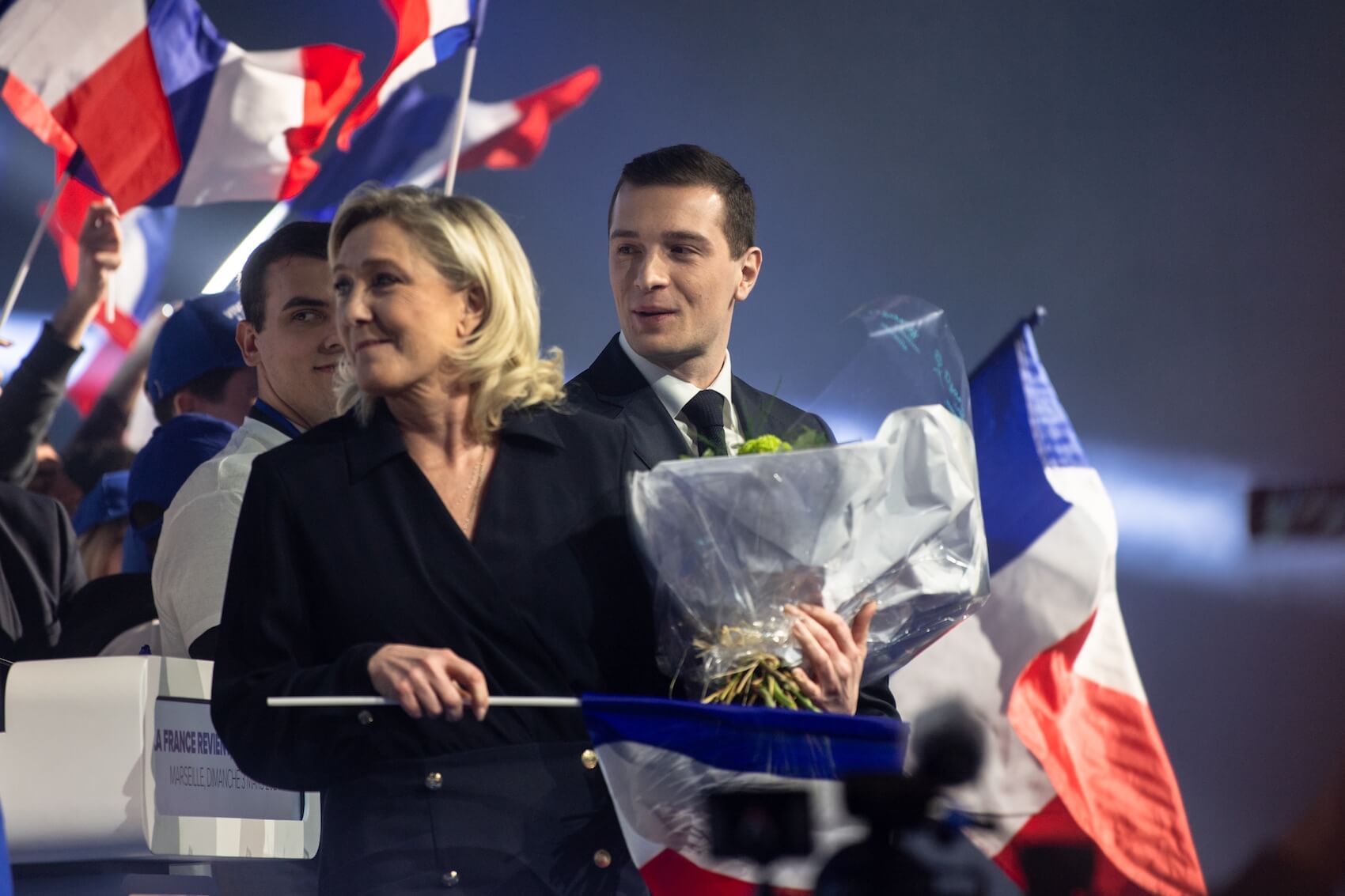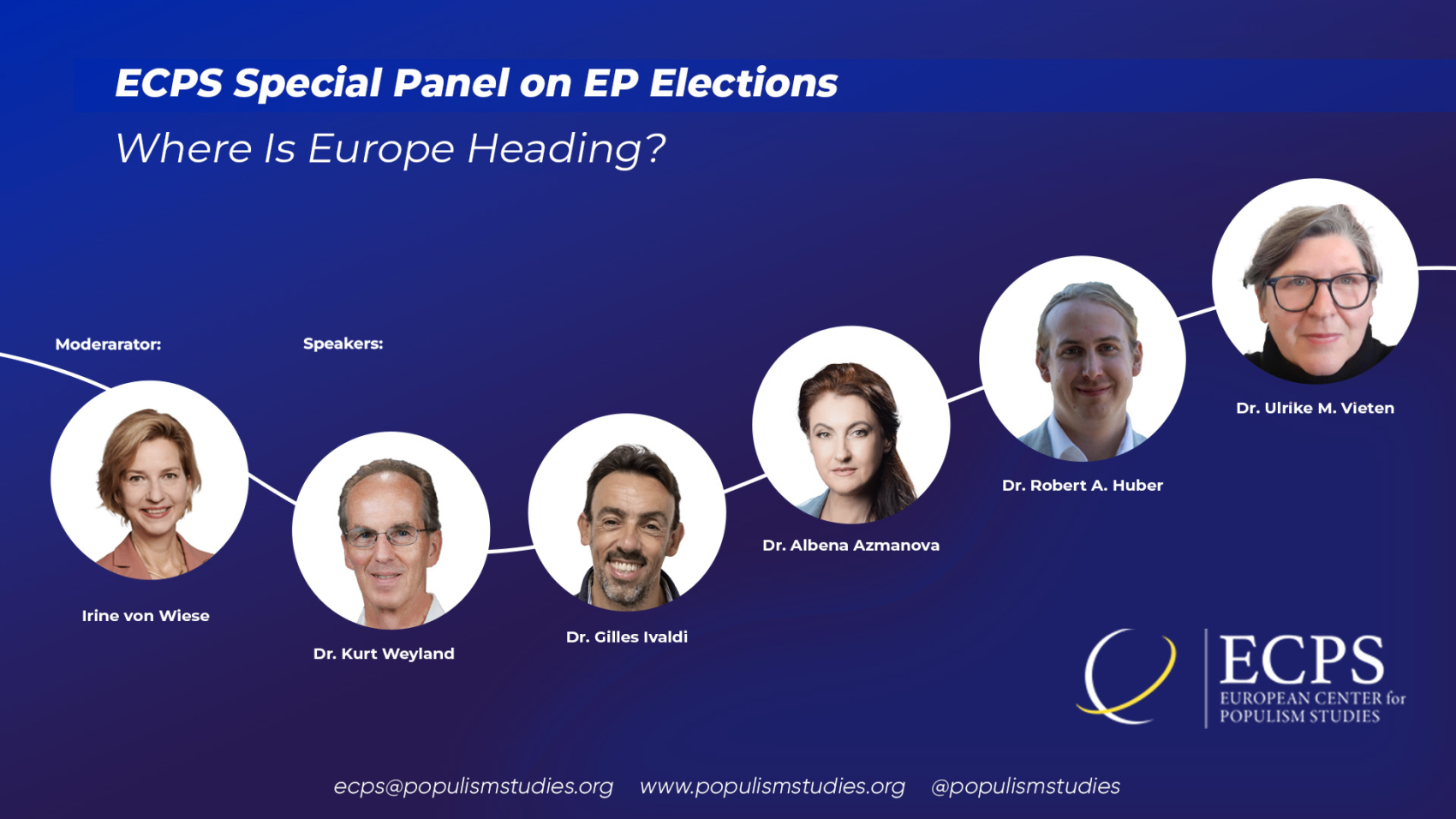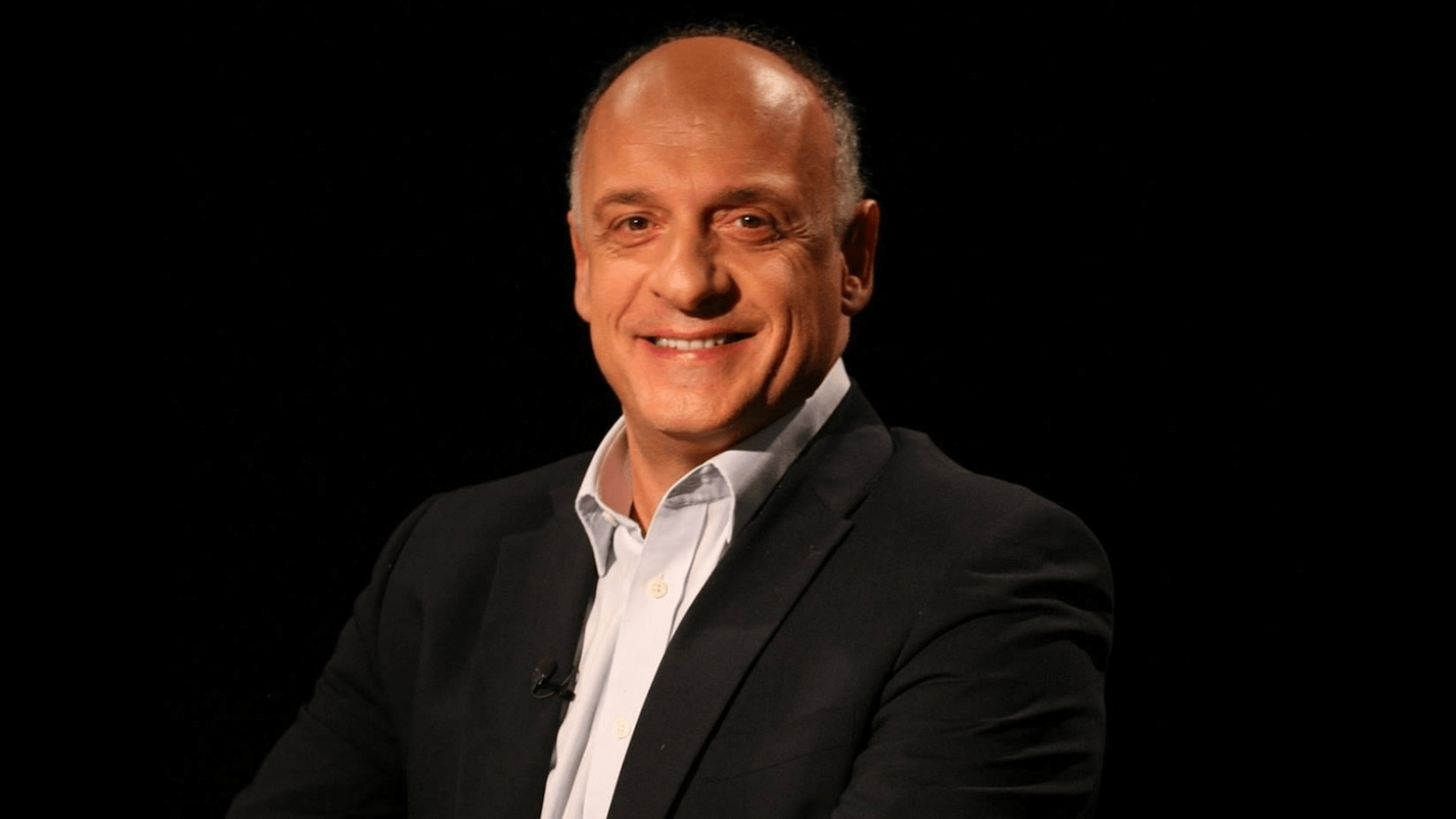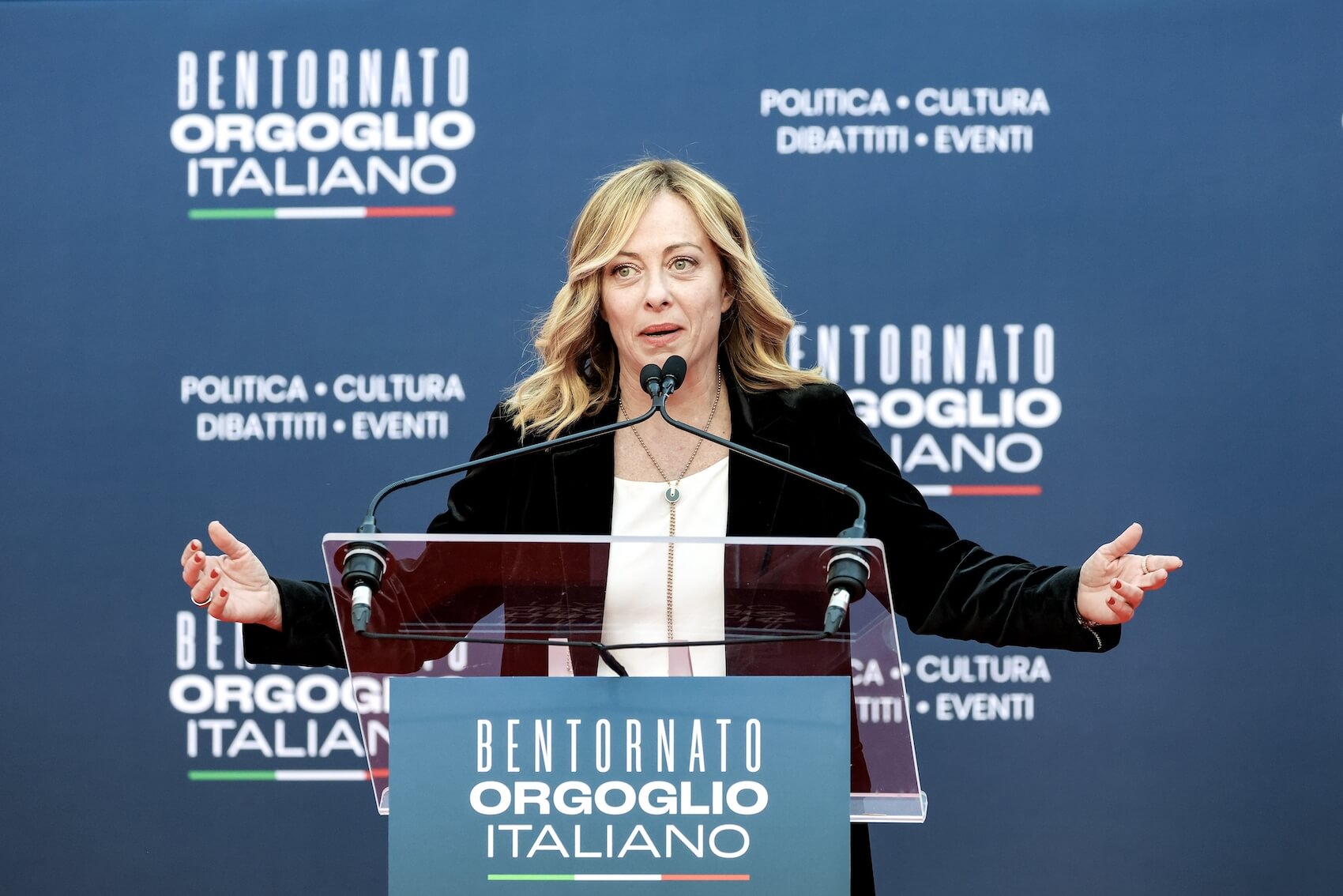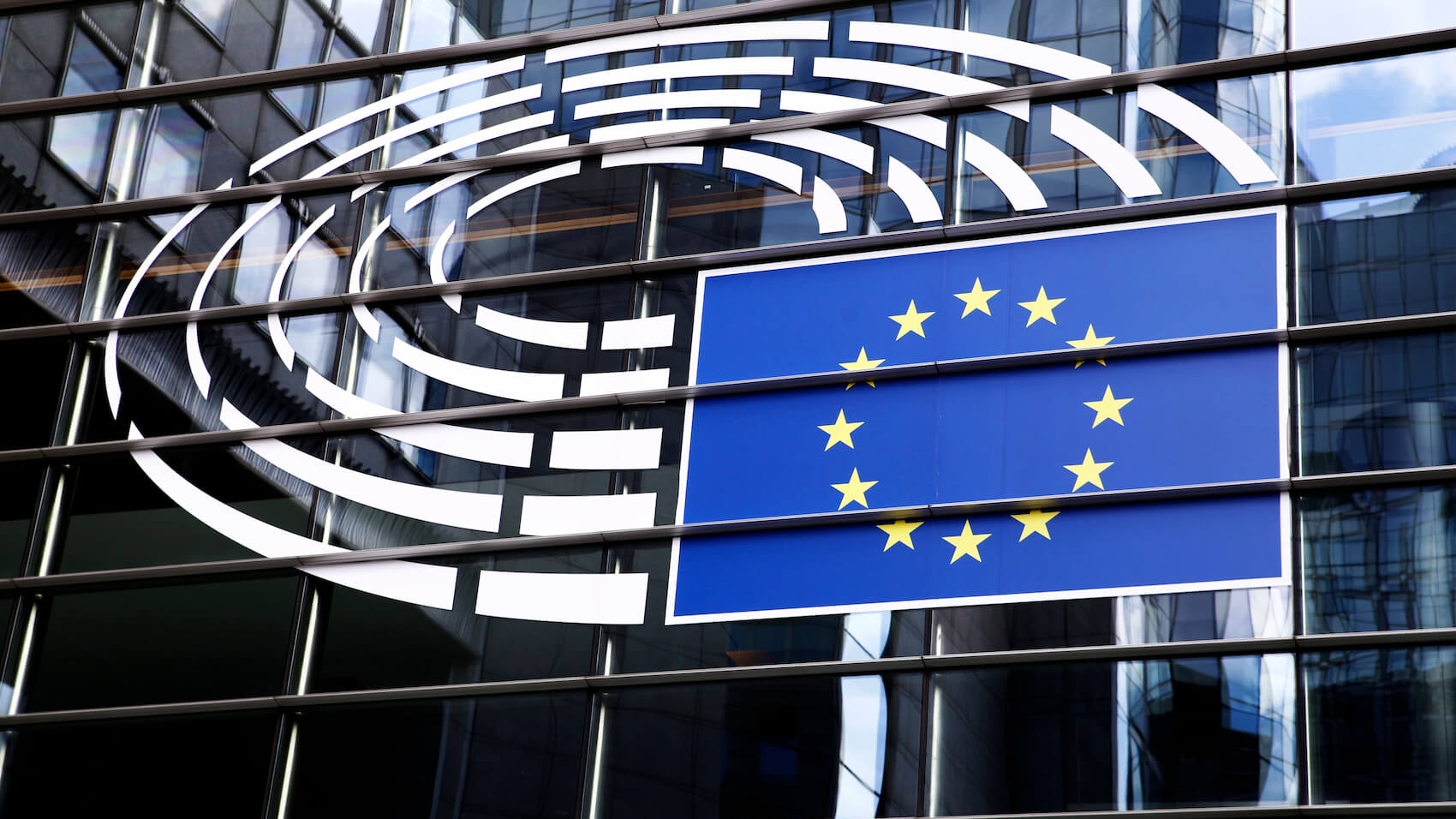By analyzing the recent electoral success of Nigel Farage’s Reform UK Party (RUKP) as a representative of European PRR parties, Professor Tim Bale emphasized that “mainstream parties who oppose them have to learn to live with this fact and realize that while they can be beaten at elections, they can’t be eradicated.” Discussing the broader political climate, Professor Bale warned of the challenges posed by both right-wing and left-wing populism. He pointed out that left-wing populism, while lacking the xenophobic and Islamophobic elements of its right-wing counterpart, often proposes overly simplistic solutions that could threaten good governance and economic stability.
Interview by Selcuk Gultasli
In an interview on Tuesday with the European Center for Populism Studies (ECPS), Professor Tim Bale, a renowned scholar from the School of Politics and International Relations at Queen Mary University of London, provided deep insights into the enduring presence of populist radical right (PRR) parties in the UK and European politics. Reflecting on his earlier predictions, Professor Bale emphasized that “mainstream parties who oppose them have to learn to live with this fact and realize that while they can be beaten at elections, they can’t be eradicated.”
Professor Bale analyzed the recent electoral successes of Nigel Farage’s Reform UK Party (RUKP), highlighting the demographic trends underpinning its support. Unlike in many European countries, where far-right support often comes from younger voters, in the UK, it is generally middle-aged or older individuals who are drawn to these parties. These supporters, many of whom left school at 16 or earlier, are not necessarily deprived but often feel uneasy about cultural changes and harbor nostalgia for a bygone Britain. RUKP has skillfully expanded its appeal beyond immigration to include resistance to “woke” politics and rapid environmental policies, positioning itself as a defender against perceived excessive social liberalism and fast-tracked net-zero targets.
The interview explored the potential implications of the Labour Party’s recent electoral victory on far-right parties. Professor Bale noted that Labour’s handling of immigration would be crucial. While a reduction in legal migration might temper some support for RUKP, ongoing issues such as illegal Channel crossings could still provide fertile ground for Farage’s rhetoric. “Nigel Farage and RUKP will be able to capitalize on that particular problem and Labour’s inability to stop them completely,” he observed.
Discussing the broader political climate, Professor Bale warned of the challenges posed by both right-wing and left-wing populism. He pointed out that left-wing populism, while lacking the xenophobic and Islamophobic elements of its right-wing counterpart, often proposes overly simplistic solutions that could threaten good governance and economic stability. “While left-wing populism has its downsides, it may not be as dangerous for minority communities as right-wing populism has proven to be,” he concluded.
In reflecting on the Conservative Party’s strategy, Professor Bale highlighted the ongoing internal debate about how to address the rise of RUKP. He suggested that the Conservatives’ move towards populist radical right policies has so far been counterproductive, potentially perpetuating a vicious cycle. The party faces a crucial decision: whether to embrace Farage and his supporters or to reaffirm its commitment to centrist, economically focused policies.
Overall, Professor Bale’s insights underscore the complex and enduring nature of PRR parties in the UK and Europe. His assertion that these parties are now a permanent fixture in the political landscape serves as a sobering reminder for mainstream parties of the challenges they face in addressing and countering populist narratives.
Here is the transcription of the interview with Professor Tim Bale with some edits.
Farage Has Majority Shareholder at the Limited Company “Reform UK”
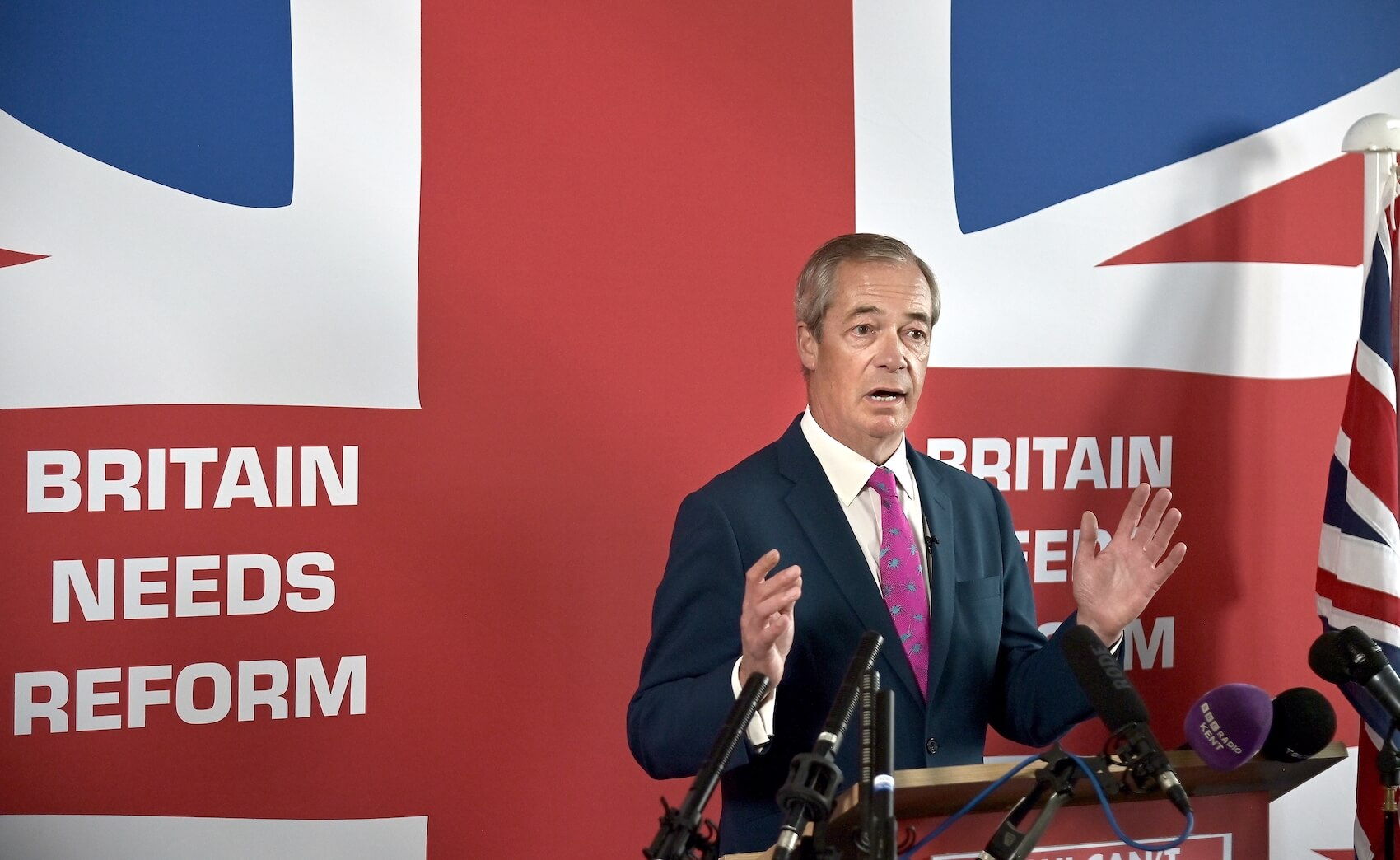
Professor Bale, thank you so very much for joining our interview series. Let me start right away with the first question. Can you provide a brief overview of the historical roots of populist far-right movements in the UK and how they have evolved over the past few decades?
Professor Tim Bale: After the Second World War, there was very little support for far-right organizations in the UK. They were very much marginal to the political process. That began to change in the late 1960s and early 1970s when mass migration first became very apparent in the UK, with the founding of an organization called the National Front, which, at least at a local level, challenged some of the main parties’ candidates.
The National Front, however, seemed to have gone effectively underground from the 1970s into the 1980s, when it was in some ways reconstituted by an organization called the British National Party (BNP). The BNP didn’t actually have much success until the late 1990s and early 2000s, when it began to fight European Parliament elections and actually had a couple of MEPs. That, however, was in the end sidelined because it was seen to be too extreme and too racist.
To some extent, it was overtaken by the United Kingdom Independence Party (UKIP), which had no roots at all in the kind of extremist or neo-fascist, violent underground in the same way the National Front or the BNP had. If UKIP was a far-right party, it was very much a Populist Radical Right (PRR) party, not an extreme right party. UKIP became more and more popular, particularly when led by Nigel Farage, and in 2015 it won approximately 4 million votes, but only because of the first-past-the-post system did it secure one MP in Parliament.
Then it transformed itself into the Brexit Party, which did very well at the European elections of 2019, when it took 30% of the vote and came first, beating the Conservatives into fifth place. The Conservatives responded by electing Boris Johnson, and in the 2019 election, the Brexit Party was reduced to just 2% of the vote and no MPs.
However, since then it has rebuilt itself to become Reform UK, very much a PRR party again. In the 2024 election, it was led once again by Nigel Farage. It performed very creditably, taking 14% of the vote, for which it won five MPs—the first RUKP MPs we’ve ever had in this country, one of whom is Nigel Farage.
So, it is seen to be on the rise at the moment. It is an unusual organization, however, in that it is not a political party in the way that most political parties would be recognized. Rather similarly, in some ways, to Geert Wilders’ PVV in the Netherlands, it is very much a kind of leadership-directed organization. It doesn’t have members and is a limited company with shareholders, with Nigel Farage as the majority shareholder.
Immigration, Opposition to “Woke” Politics and Resistance to Net Zero Environmental Policies
In your view, what are the main socio-economic drivers behind the support for far-right parties in the UK? How do these parties capitalize on issues like immigration, economic disparity, crime and national identity?
Professor Tim Bale: Well, immigration has probably been the main appeal of these parties. When the far-right in this country was more extreme, there was a degree of biological or genetic racism—the idea that people from certain ethnicities were somehow inherently inferior. I think that has largely disappeared. However, the racism exhibited by the populist radical right today tends to be more of a “new variety,” whereby people from different ethnicities are not seen as biologically inferior but are perceived as having a culture that does not easily integrate with the majority culture.
Support for these parties depends partly on concerns about cultural integration and the numbers of people coming to the UK. Any increase in immigration, either legally or, as they would define it, illegally (such as asylum seekers arriving outside recognized government routes), is associated with a rise in support for these parties.
Demographically, the support for radical right parties in the UK, unlike in many European countries, does not come much from young people. Their support is generally located among middle-aged or older individuals, including those who are retired. Many of these supporters left school at the age of 16 or even earlier and are not necessarily deprived; some are quite comfortably off but are uncomfortable with cultural change and have a degree of nostalgia for how Britain was when they were younger.
However, immigration isn’t their only appeal. They have also begun to expand their repertoire to include resistance to what they call “woke” politics—any kind of social liberalism they see as excessive. Additionally, they campaign against too rapid a progress towards net zero on the environmental front. So, RUKP pitches its appeal on three main issues: immigration, opposition to “woke” politics, and resistance to net zero environmental policies.

How do you think the recent victory of the Labour Party impacts the political landscape for far-right parties in the UK? Do you foresee a decline in their influence, or could it potentially galvanize their base?
Professor Tim Bale: I think, in part, the answer to that question depends on how Labour deals with and delivers on immigration. If Labour manages to preside over a drop in immigration numbers, then that will, to some extent, suppress the support for RUKP. However, it will likely not be able to stop people from making the crossing in the English Channel from France to the UK to claim asylum. This is something that successive British governments have found very difficult to combat, and given that Nigel Farage and RUKP make a great deal out of that particular route into the country, it’s going to be difficult for Labour to completely suppress support for RUKP that arises from anxiety about those crossings.
We will have to see how things unfold. The numbers will probably go down when it comes to legal migration anyway, because fewer people will be coming from Ukraine and Hong Kong, which have been significant contributors to the increase in numbers. The previous government also made it more difficult for people to bring their families with them when they come on the study route into the UK. So, numbers will probably go down as a result of that as well.
However, as I mentioned, that’s only legal migration. The small boat crossings will likely continue, and therefore Nigel Farage and RUKP will be able to capitalize on that particular problem and Labour’s inability to stop them completely.
Labour’s Social Liberalism May Become a Point of Attack for RUKP
Given the current political climate, what potential threats do you think far-right parties pose in the UK? How might they adapt their strategies in response to the Labour Party’s resurgence and the broader political environment? Do you think they will continue to rely heavily on populist Euroscepticism, or might they shift their focus to other issues?
Professor Tim Bale: Euroscepticism is indeed an interesting topic. There is a conspiracy theory on the right of British politics, with RUKP being the main carrier of this idea, that Labour is ultimately interested in rejoining the European Union, or at the very least, getting much closer to it and “reversing Brexit.” Any move by the Labour government in that direction will likely encourage pushback from RUKP, potentially leading them to emphasize Europe more than they have recently. Interestingly, Brexit was not a major part of the general election campaign or RUKP’s campaign; they focused more on immigration, “woke” politics, and net zero.
Given that the Labour government will almost certainly need to try and move closer to Europe to reduce trade friction, it could find itself under attack from RUKP on that basis. Additionally, since the Labour government is fully committed to rapid progress towards net zero carbon emissions, RUKP will likely attack it on those grounds. They will also presumably criticize Labour for not making as big an issue of so-called cancel culture or trans rights as the Conservative government did. Labour’s inherent social liberalism may also become a point of attack for RUKP.
What I predict will happen is that RUKP will argue that both the Conservatives and Labour have tried and failed, particularly on immigration, and now it is time to give RUKP a chance.
Farage to Be a Very Important Part of PRR Politics in the UK for Decades to Come
Nigel Farage has been a significant figure in British politics, particularly in the rise of UKIP and the Brexit movement. Given the current political landscape, how do you assess Farage’s continuing influence on far-right politics in the UK?
Professor Tim Bale: Well, in some ways, Nigel Farage is far-right politics in the UK. There is no one, really, at least electorally competitive to the right of RUKP, and he is very much the undisputed leader of that party. He is a consummate communicator, incredibly persistent and patient. He was elected to Parliament on his eighth attempt, having tried and failed seven times before. His doggedness has paid off, and he’s not going away anytime soon. Despite looking older, he is actually only in his late fifties or possibly just about sixty, so he has plenty of political life left in him.
One potential issue with Farage is his tendency to fall out and argue with colleagues who challenge him in any way. This has been a recurring story with UKIP and, to some extent, the Brexit Party, and it may indeed become true of RUKP. It remains to be seen whether RUKP will be able to institutionalize and become a normal political party if that means diluting Farage’s authority. It will be interesting to see if RUKP becomes a genuinely membership-based organization. Currently, its “members” are essentially subscribers or donors with no real say or rights within the party.
As a Member of Parliament, Farage will be able to use that platform in addition to his media presence. Whether he will continue to present his nightly weekday show on GB News, a new streaming platform that has become quite important in the center-right and right-wing media ecosystem, remains to be seen. However, he is undoubtedly “box office” in media terms. Journalists are charmed by him, obsessed with him, and give him much more airtime than RUKP’s vote share or number of MPs would typically warrant.
I would expect Nigel Farage to be a very important part of populist radical right politics in the UK for years, possibly even decades, to come.
Reform is the party that increased its vote the most, by 14% and got 4 million votes. Can you elaborate on the success of Nigel Farage’s RUKP as a populist party like its peers in continental Europe? Can you explain the similarities and differences between RUKP and the continental populist parties? How has his rhetoric and political strategy managed to resonate with a significant portion of the electorate?
Professor Tim Bale: I think Nigel Farage has to be seen as very much the British representative of the populist radical right in Europe. I would use that phrase to classify RUKP rather than the phrase “extreme right.” This differentiates him from parties like France’s National Rally, which has its roots in the extreme right despite its detoxification process. Similar histories can be found in the Sweden Democrats in Sweden and the Brothers of Italy, which evolved out of the fascist movement in that country.
In some ways, Farage is more like the populists seen in other Scandinavian countries, which don’t necessarily have roots in the anti-democratic, sometimes violent, fascist underground. This places him on the more moderate side of far-right parties in Europe.
In terms of techniques, Farage employs familiar populist strategies seen across Europe. He positions himself as the tribune of the people against the elite, who he claims have betrayed the people, particularly on issues like mass migration. He is also prepared to use language regarding Islam that mainstream politicians avoid. Farage talks about the supposed dangers Islamist subcultures present to mainstream national culture, and his rhetoric has become more Islamophobic and xenophobic over the years, which is also true of many populist parties in Europe. So, Farage is not a unique British archetype; he is very much a familiar figure to anyone who has followed populist parties in Europe.
The Conservative Party’s Strategy Proves Counterproductive

Will this moment of triumph for RUKP prove a temporary upset to Britain’s long tradition of largely centrist rule? Or will RUKP’s explosive arrival in Westminster bring a fundamental realignment of British politics along the lines seen elsewhere for populist parties across the globe?
Professor Tim Bale: This is the million-dollar question and relates to how the Conservative Party, the mainstream center-right party in the UK, deals with Nigel Farage from now on. One can argue that the Conservative Party has been moving from the mainstream towards the populist radical right over the last decade, partly because it believed that to suppress support for RUKP, and before that the Brexit Party and UKIP, it had to adopt some of the rhetoric and measures proposed by the populist radical right.
However, that strategy doesn’t seem to have worked. Just as in Europe, it often proves counterproductive, simply increasing the salience of the issues on which those populist radical right parties thrive. So, the Conservative Party has moved towards the populist radical right, yet the populist radical right has become just as, if not more, popular than before.
The Conservative Party is now debating within itself, as it chooses a new leader, whether that new leader should welcome Nigel Farage into the party or at least into some sort of alliance to “unite the right,” or whether they should continue to hold Farage at arm’s length to differentiate themselves and not alienate more moderate voters. This conversation will likely continue within the Conservative Party for some time to come.
The impact of RUKP is limited by the UK’s electoral system. Because we have a first-past-the-post system, RUKP is not rewarded with a fair proportion of seats in Parliament for the votes it receives. Given that it got about 14% of the vote this time around, you would expect it to have something like 75-80 seats in the UK Parliament, which has 650 in the lower chamber, but it only has 5.
However, Nigel Farage has a significant media presence and appeals to both Conservative voters and Conservative members. When polling is done among Conservative Party members, they often cite Farage as one of their favorite politicians. This has led some to conclude that if Farage were ever to join the Conservative Party, he would stand a good chance of leading it, given that the decision on who becomes the leader is up to grassroots members with whom he is very popular.
Do you think RUKP’s success will push the Tories more to the populist right, a trend we see in continental Europe as we already hear calls by some Tory heavyweights to include RUKP among their ranks?
Professor Tim Bale: I think that is entirely possible, because the Conservatives, as I’ve already mentioned, are somewhat obsessed with Nigel Farage and RUKP. They focus more on the voters they have lost to him and that party than on those they have lost to Labour and the Liberal Democrats on their left or centrist flank.
An analysis of the election results suggesting that the Conservative Party did poorly because the right was split might encourage Conservatives to move even further to the right to try and bring back some of those voters from RUKP. However, as examples from Europe indicate, this doesn’t seem to be a particularly successful strategy. That doesn’t mean, of course, that the Conservative Party won’t adopt this strategy, because parties aren’t always as rational as they should be.
Conservative Party Acts More Like a Populist Radical Right Party
In your article “Who leads and who follows? The symbiotic relationship between UKIP and the Conservatives – and populism and Euroscepticism,” you discuss how the Conservative Party initially fused populism and Euroscepticism, which UKIP later capitalized on. How do you see this symbiotic relationship evolving now, especially with the Labour Party’s resurgence and the success of Farage’s party?
Professor Tim Bale: Well, in that piece, I argued that the Conservative Party talked up themes that resonate with voters for the populist radical right and then elected a leader who chose to abandon those policies and that rhetoric, allowing Nigel Farage to come in and fill that vacuum. At that point, the Conservative Party began to try and bring those who had defected to his party back by adopting his rhetoric. This creates a continual cycle where the Conservative Party begins to act more like a populist radical right party, and the populist radical right begins to do quite well.
The Conservative Party’s analysis often leads them to believe they need to act even more like a populist radical right party, perpetuating a vicious cycle. I expect this to continue unless and until the Conservative Party elects a leader who decides to break this pattern. Such a leader would need to refocus the party on being a mainstream center-right entity, with an appeal based on their ability to manage the economy and provide a welfare safety net for those who need it. Until that happens, this cycle will likely continue.
The Conservative Party now faces a significant decision. Whether they will elect such a leader this time around or after potentially losing another election, remains to be seen.
Populist Radical Right Parties Can’t Be Eradicated
In your article titled ‘Cinderella and Her Ugly Sisters: The Mainstream and Extreme Right in Europe’s Bi-polarising Party Systems’ that you penned back in 2010, you stress that there is every chance, that such parties (far-right parties) will indeed ‘succeed in securing a permanent niche in Western Europe’s emerging political market.’ How do you evaluate your statement that was made almost 15 years ago looking at both Europe and Britain in 2024?
Professor Tim Bale: Well, I think it sounds rather immodest to say, but it has been borne out by the facts. It is clear now, as scholars like Cas Mudde would emphasize, that the far right is very much a part of normal politics in many countries, including the UK. The populist radical right, as part of the far right, is also well-entrenched. These parties have an appeal to a certain section of the electorate who are frustrated with the mainstream’s inability to deliver what they want, whether it be immigration control, a better standard of living, or a halt to cultural changes.
I see no reason why this shouldn’t continue. However, at the moment, in most countries—perhaps with the exception of France, Italy, and Austria—the populist radical right tends to hit a ceiling of around 15 to 20% in most countries. It will be interesting to see what happens in the upcoming Austrian elections, where the far right is expected to do very well again.
We also have examples like Hungary, where the populist radical right is in power, even though it didn’t necessarily come to power as such a party but has become one under Viktor Orbán and Fidesz. Anyone interested in the populist radical right must accept that these parties are a permanent part of Europe’s party systems. Mainstream parties who oppose them have to learn to live with this fact and realize that while they can be beaten at elections, they can’t be eradicated.
And lastly, second round parliamentary elections in France show that far-left has beaten the far-right National Rally. Do you consider left-wing populism as problematic as right-wing populism?
Professor Tim Bale: Left-wing populism tends not to carry the xenophobic and Islamophobic overtones that are prevalent in the populist radical right. In this sense, it is somewhat less dangerous to multicultural societies than its right-wing counterpart. However, left-wing populism often proposes very radical solutions that are simplistic and likely not feasible, posing a significant threat to good governance and economic growth.
So, while left-wing populism has its downsides, which include potential harm to economic dynamism and governance, it may not be as dangerous for minority communities as right-wing populism has proven to be.


